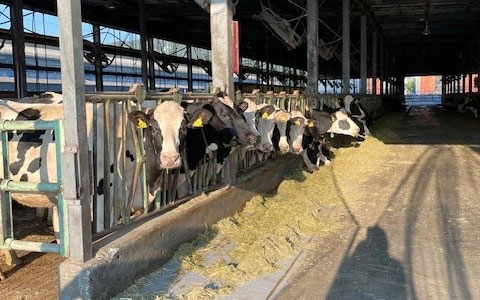
Foreign Migrant Workers in Japanese Agriculture - Stakeholders' Viewst
- 24 March 2025
- 6:00pm – 7:00pm
- Daiwa Anglo-Japanese Foundation, 13/14 Cornwall Terrace, Outer Circle (entrance facing Regent's Park), London NW1 4QP
- https://dajf.org.uk/event/foreign-migrant-workers-in-japanese-agriculture-stakeholders-views
- +44 (0)20 7486 4348
- events@dajf.org.uk
- Tweet
Japan faces serious labour shortages in many sectors as a result of its ageing society and rapid population decline. In a notable change of approach, given its post-war history of refusing low-skilled migrant labour, Japan is now cautiously opening the door to migrant workers. In 2019, under the Abe administration, the Immigration Control and Refugee Recognition Act was revised to allow bona-fide workers to enter on the newly created Specified Skilled Worker (SSW) programme.
In this seminar, Dr Roberts will discuss the new short-term labour schemes, highlighting stakeholders’ viewpoints based on empirical research*. She will address the following questions: What are their hopes for foreign workers in their communities? Are they prepared to live alongside them as fellow residents in the long term? What are the key recommendations for addressing the challenges that arise?
*Roberts and Fujita conducted research on the agricultural sector in Kyoto and Aichi Prefectures between 2018 and 2024 to understand how the new short-term labour schemes are viewed by the stakeholders who implement them on the ground— farmers, local officials, and employment agencies.
About the contributor
Glenda S. Roberts, Ph.D.
A native of the USA, Glenda obtained her Ph.D. in Anthropology from Cornell University in 1986. From 1988, she spent eight years in Hawai’i, first at the University of Hawai’i at Manoa as a Visiting Assistant Professor in Anthropology, then as a post-doctoral researcher in the former Population Institute of the East-West Center. Subsequently she was Associate Director at the Center for Japanese Studies. In 1996, she began a Visiting Associate Professorship at the University of Tokyo, Institute of Social Science, to start up the Social Science Japan Journal. From 1998 she began her professorship on the faculty of the Graduate School of Asia-Pacific Studies of Waseda University.
Dr. Roberts has held numerous Visiting Scholar positions, including at Yale University, the EHESS, Sciences Po, the University of Vienna, and the Freie Universität Berlin. She served on the Editorial board of the Social Science Japan Journal from 1996-2009 and was President of the Society for East Asian Anthropology of the American Anthropological Association, 2017-2019. She retired from Waseda University in September 2024, and now resides in Kailua, Hawai’i, where she holds affiliations with the East-West Center, the Center for Japanese Studies at the University of Hawai’i Manoa, and the University of Michigan Center for Japanese Studies.
Her most recent publications in the area of immigration to Japan, written with Noriko Fujita, concern recent trends in the Japanese government’s policy to welcome foreign migrants in manual work sectors: “Low-Skilled Migrant Labor Schemes in Japan’s Agriculture: Voices From the Field,” Social Science Japan Journal, Vol. 27 (1): 21-40.” and “Foreign labor without foreign residents: Foreign agricultural labor in Japan,” in Strausz, Michael, ed., No Island is an Island: Perspectives on Immigration to Japan, University of Hawaii Press: 88-108, 2025.
Booking Essential | Admission Free
